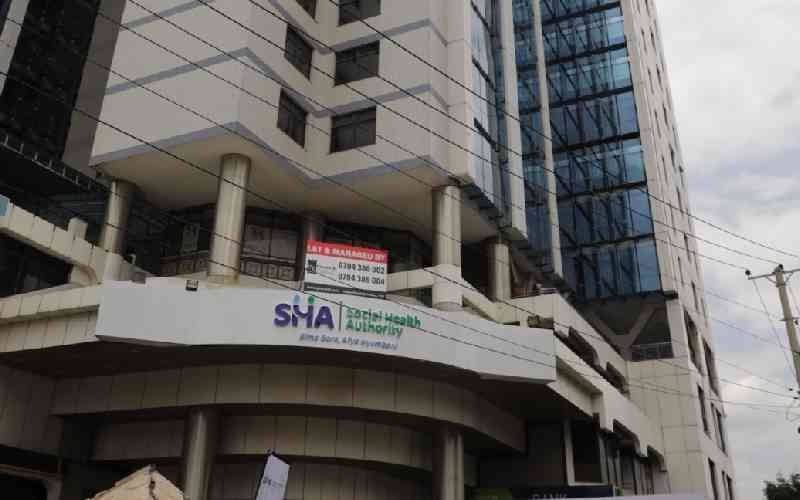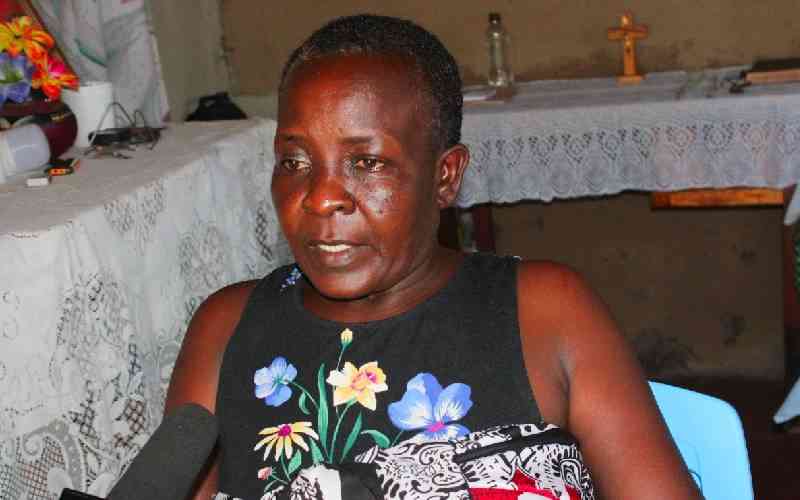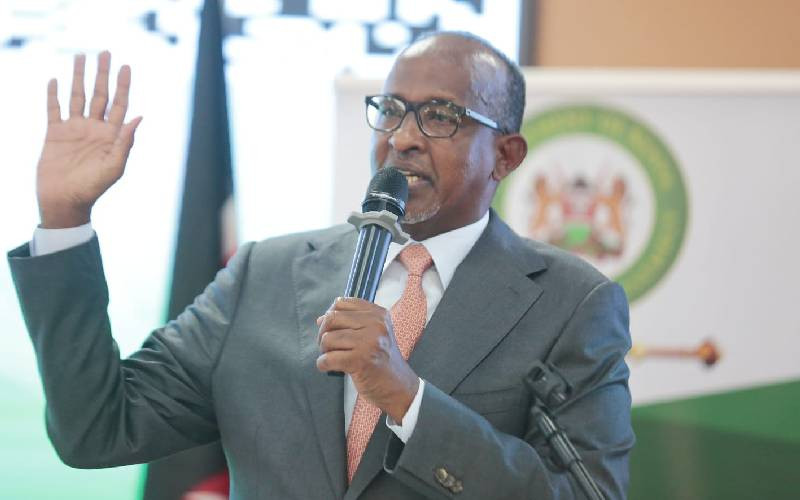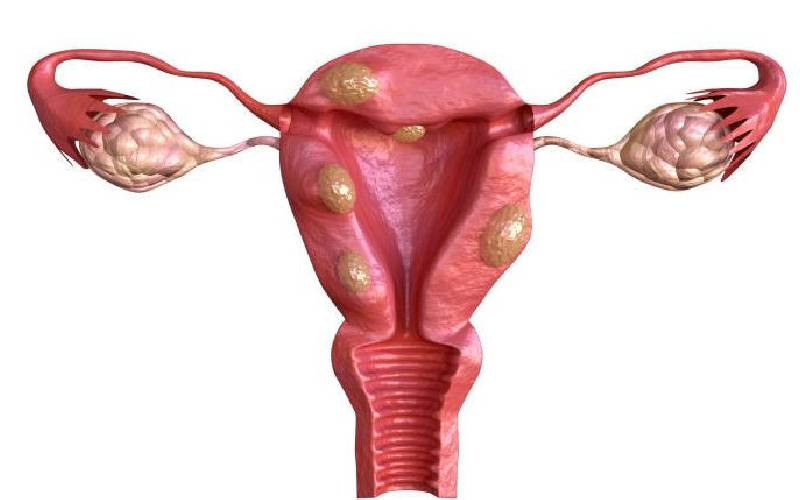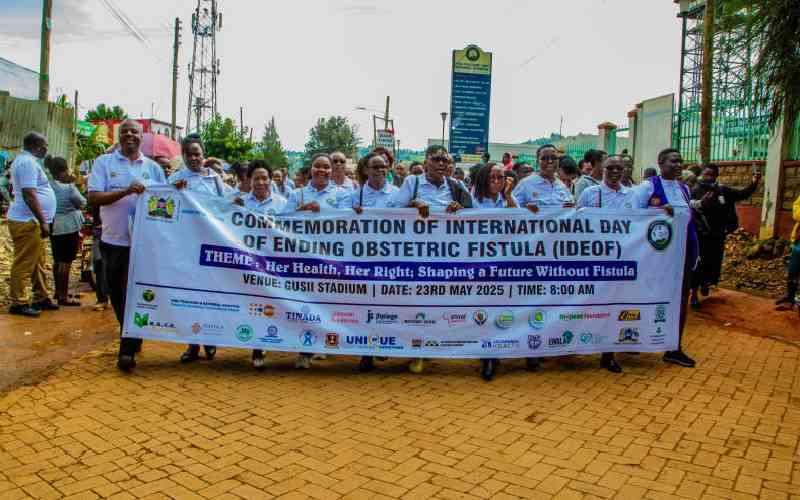
Obstetric fistula is one of the most tormenting conditions that women undergo not only in Kenya but also globally.
For 38-year-old Sharon Korir, a mother of two, her experience with the condition back in 2017 was physically and mentally challenging.
"My life was just normal after delivering my first baby just before 2017. He came through without any complications," she says.
She says that after the recommended three days, she went back home and all went well.
"After seven years, I felt ready to have another baby and luckily I became pregnant, " Sharon says.
A few days to the delivery of her second child, Sharon developed sciatica, pain caused by injury to or pressure on the sciatic nerve. When walking, she had to use crutches to silence a sharp pain that was coming from her pelvic bone.
During the time of delivery, she labored for 12 hours before eventually giving birth.
"After giving birth, my baby had an issue with high bilirubin (yellow pigment in the skin) so I had to stay in the hospital for 21 days. While there, I had to turn my focus on my baby, " she says adding that she had little time to herself and it was only later that she noticed that her clothes were getting soiled with urine and faeces.
- Healing beyond surgery: Women fighting fistula reclaim dignity, lives
- West Pokot women suffer in silence as obstetric fistula ravages their lives
Keep Reading
"I couldn't hold them and this went on for a couple of after going back home from the hospital, " Sharon narrates.
She was not ready to open up about what was ailing her, even after her room turned nasty, with the foul smell from her soiled clothes going to every corner.
Her husband, who did not know what she was going through, kept complaining that she was not clean. And because she had a newborn baby in the house, her friends started asking when they could come and see the baby but Sharon kept denying their requests.
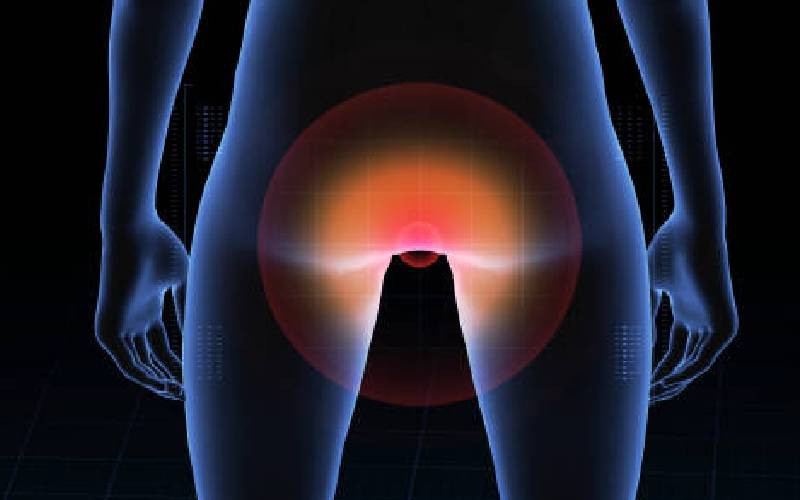
"I'm a charismatic person, I love talking and interacting with people but because of that unfortunate event in my life, I became a quiet person, very depressed. It really lowered my self-esteem, " she says.
"One time, I cried in my room and my eyes were so red> I almost went mad because I had never seen this before and I didn't even have a clue about what was wrong, " she explains.
Later, she found the courage to share the experience with her sister-in-law who advised her to get some medical attention.
A doctor told her she had an obstetric fistula that had occurred during the birth of her baby.
According to Dr Stephen Mutiso, a Consultant Obstetrician and Gynecologist in Nairobi, a fistula is a serious birth injury characterised by the formation of a hole between the bladder and vagina or between the rectum and vagina. Because of this, urine or stool leaks out all the time.
World Health Organization (WHO), states that, each year between 50,000 to 100,000 women are affected by Obstetric Fistula.
It's estimated that more than 2 million young women live with this untreated condition in Asia and Sub-Saharan Africa.
In Kenya, an estimated two women get fistula in every 100 births. This results in 2400 new cases annually.
According to Dr Fredrick Kairithia, an obstetrician and gynaecologist, the main causes of fistula include obstructed labour. This is common in short-stature women with small pelvic bones (outlet) or normal-stature women who have large babies.
Obstetric fistula can also occur from inadvertent injury to the bladder or rectum during the process of delivery by a health worker.
This type of injury is more common at cesarean sections but can occur during vaginal birth too. In cases where instruments are used to assist delivery (vacuum or forceps), they may injure the tissues.
Dr Kairithia explains that signs will depend on the kind of fistula that one has but, commonly, the involuntary passage of urine or stool or both all the time following a difficult childbirth.
He says that all ages are vulnerable to this worrying condition as long as risk factors exist.
"However, fistula is common in very young girls (teenage mothers) because their pelvic bones are not well-developed and they are not mature. Moreover, they have poor health-seeking behavior due to lack of funds and the stigma associated with teenage pregnancies, " explains Dr Kairithia.
He also points out that older women in poor settings and those with a lack of access to skilled birth attendants also suffer the most.
Sharon says that after the diagnosis, her sister-in-law booked a private surgeon and she went for corrective surgery. It took 6 months for the surgical site to heal and this was very painful, according to Sharon.
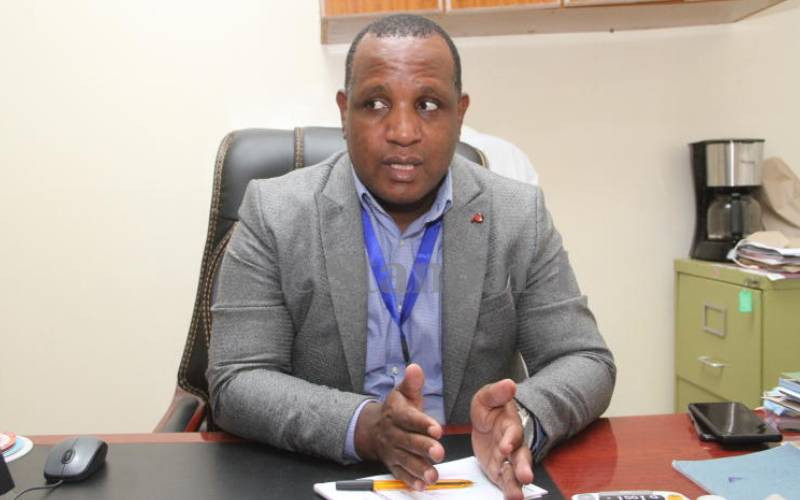
"Sex is a right that your partner should enjoy but reality hit me hard when I was unable to have sex with my husband because I was advised by my doctor to stay away from sex until six months were over, " Sharon painfully recalls.
"That this is the way you can lose your husband and before you realise it, you are alone in this journey," she says. "But I am happy now because she got healed and I can now satisfy my partner, open up about my condition and carry out my normal duties like any other ordinary woman out there."
From her ordeal, she started the 'Save a Woman Fistula Foundation'. The foundation focuses on obstetric fistula often resulting from childbirth, but also supports women with fistula resulting from rape, cancer, early marriages and female genital mutilation.
"Save a Woman Fistula Foundation is basically a beacon of hope where women come together, share the same experiences, and find mental healing," Sharon says. "So far, around 82 women have significantly benefited and they have been able to speak about fistula hence creating awareness,."
Dr Kairithia says that, Obstetric fistula is a global problem and often points to below-standard level of care during delivery.
According to Global Fistula Map, nearly 2500 seek care annually and only 3 in 10 get the surgery resulting in a backlog, partly due to a lack of trained surgeons.
"Obstetric fistula is absolutely preventable. Prevention measures involve delivery in health facilities where prolonged labor can be detected and delivery accomplished through emergency cesarean section, " Dr Mutiso advises.
"We need more health facilities where expectant women can deliver and which can offer emergency cesarean delivery and more trained health care workers to provide maternity services. Treatment of fistula involves reconstruction surgery, " says Dr Mutiso.
Sharon says there are only five fistula surgeons in Kenya since most are trained in United Kingdom.
"It's the responsibility of the government and other concerned stakeholders to intervene and ensure they are enough specialists so as we can silence this condition," she says.
"To all fistula victims, no matter how many surgeries you will go through, what I can assure you is that you will finally be well, " Sharon says.
"Society should stop injecting stigma to victims by isolating them since this is just a treatable and preventable condition. It is not a death sentence as long as the surgery is done well," Sharon says.
Sharon also observes that Kenyans do not know about this condition because she remembers that she and her husband did not understand the symptoms when she first experienced them.
"It's the work of the government and everyone responsible to ensure the public understands the condition to cut stigma and stereotypes. They should do this through creating awareness, " she says.
 The Standard Group Plc is a multi-media organization with investments in media
platforms spanning newspaper print
operations, television, radio broadcasting, digital and online services. The
Standard Group is recognized as a
leading multi-media house in Kenya with a key influence in matters of national
and international interest.
The Standard Group Plc is a multi-media organization with investments in media
platforms spanning newspaper print
operations, television, radio broadcasting, digital and online services. The
Standard Group is recognized as a
leading multi-media house in Kenya with a key influence in matters of national
and international interest.





